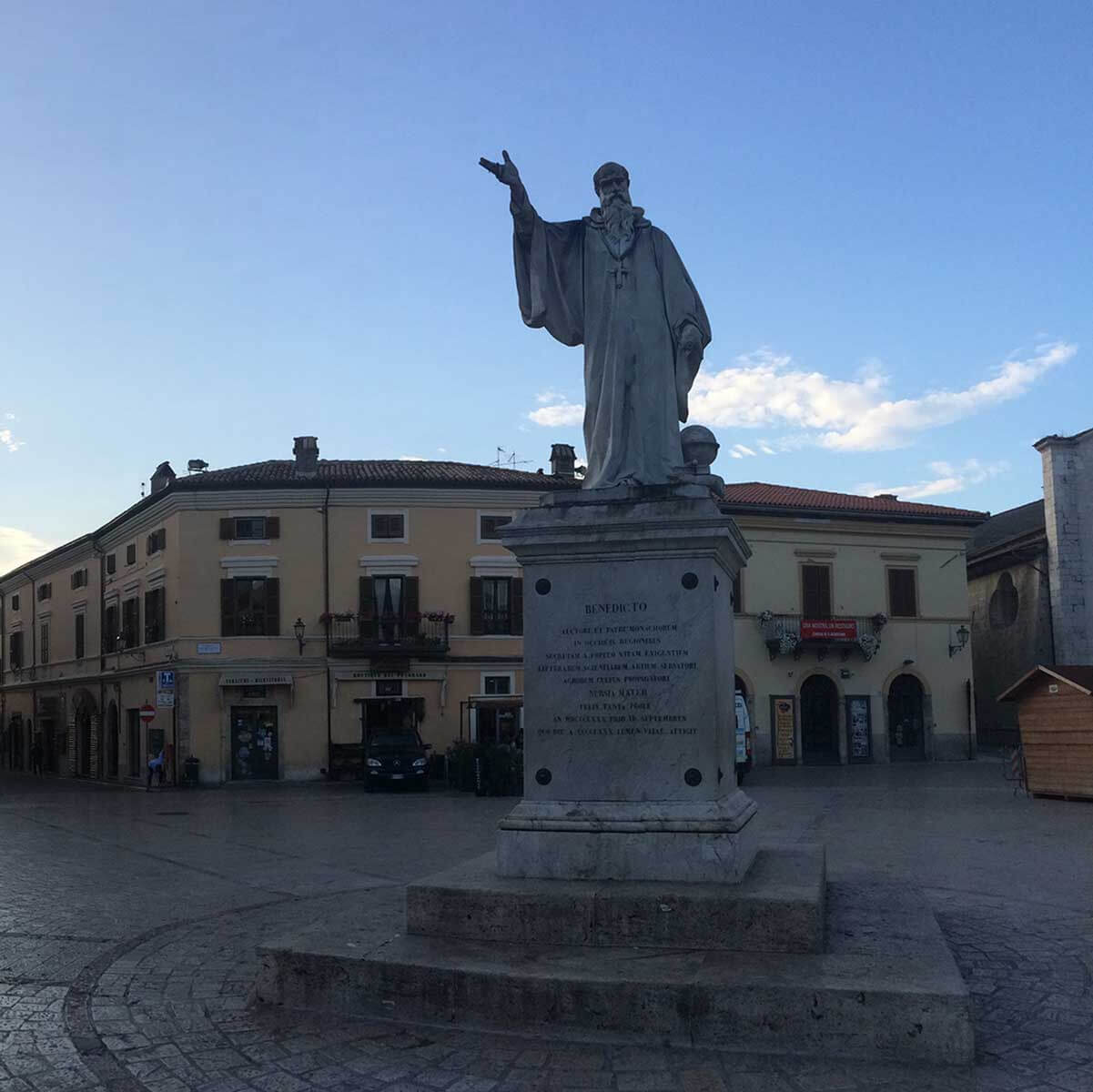A reflection by Mother Maria-Michael Newe, OSB, on the Benedictine’s call to practice some of the least popular virtues in our world’s culture

In Chapter 7 of his Rule, Saint Benedict tells us, “We must set up that ladder on which Jacob in a dream saw angels descending and ascending (Gen. 28:12). Without doubt, this descent and ascent can signify only that we descend by exaltation and ascend by humility. Now the ladder erected is our life on earth, and if we humble our hearts the Lord will raise it to heaven. We may call our body and soul the sides of this ladder, into which our divine vocation has fitted the various steps of humility and discipline as we ascend” (Rule 7:6-9). It says our divine vocation. As some say, the monastic life is the life of the angels. It’s a bit hard on us because we have original sin hanging on us, but really it is like the life of the angels in that we have the ability to be undistracted in our praise of God. A married woman’s first duty is her husband and her family. We have given up things and that particular love, the pleasure of a family– all of those things we have given up because of the divine call. The divine vocation to praise God in a particular way. We have to remember it is a divine call. It’s not something we imagined up together and decided to do. It cannot possibly happen without God’s grace and His call.
I want to share with you this part about what happened after Jacob’s dream: “When Jacob awoke from his sleep, he said, ‘Truly, the LORD is in this place and I did not know it!’ He was afraid and said, ‘How awesome this place is! This is nothing else but the house of God, the gateway to heaven!’” (Gen. 28:16-17). God’s almighty power and His presence can be fearful, and we should remember who God is. We are not His equal. There should be some true fear of the Lord in our lives. When you really love someone, you fear to hurt them; you fear to do something against them. I think that is part of the fear of the Lord. We should fear to offend Him and to live against Him. We should fear to harm that relationship. This fear is appropriate because we know the consequences. This fear is the foundation of the dear virtue of humility. Humus: we are all made of the same dirt. There is not anybody who is made of something better – unless you’re not a human being. There is nothing that makes us greater, except what St. Benedict says: one can be more loved because of their obedience. This is, because of our nature, a tug of war, due to original sin. We carry within us the desire to be like God—to have all the knowledge, to be equal with Him. Obedience is the recognition and submission to someone being over you—to have someone over you and to have the right to ask of you great (and sometimes difficult) things, and for you to then have the duty to obey. This is our struggle in life, and why obedience is such a great virtue.
Saint Benedict was a wise man and he loved the Lord profoundly. His order continues to this day and it is the order that the mystics say will continue until the end of time. I believe this is because this order teaches man about Eden: the right relationship with God, the work and the prayer, the honor of God and the honor of one another. This is the work that we are showing to the world by our life and example—To teach them again how to communicate with God, how to love God, and how to act appropriately with our beloved Savior. Let’s think of this today: How much are you loving God in your life? May your goal be to love Him with your whole heart, your whole soul, your whole mind, and your whole body.

